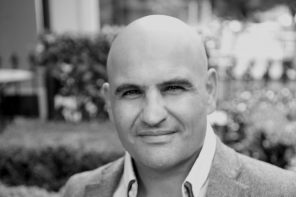This blog is dedicated to one of the most common mistakes I see people make when they are faced with a struggle, a hard realization or an emotional response that may cause suffering – especially for women. This idea that we must solve our problems alone and just muscle up and get through them, is a fallacy attached to the notion that we are super women and have to handle our problems or situations alone. It is so easy to pack the problem up into the “too hard” basket because:
1) You assume that “No one wants to hear my problems. Everyone has enough of their own stuff going on and they don’t need mine on top of it”. You don’t want to be a burden by putting your troubles onto someone else.
2) It’s too personal and the people around you are too closely involved and their opinions are naturally influenced by a long association to the problem or people involved.
3) You don’t feel you have someone you can go to or trust enough with the information you need to discuss. Or, the problem actually involves those who are close to you.
4) You feel the information has shame or guilt attached and may reveal a side of you that you would rather keep hidden from those around you. You fear that judgement will affect the relationship long term or the image they have of you in their eyes.
5) You fear judgement
6) You have tried to figure out the solution by yourself and have hit a blank. You are too emotionally involved and “can’t see the forest for the trees” and now you are stuck.
7) You fear judgement
8) You have tried counselling, therapy or other forms of mind therapy and it hasn’t worked so disappointment blocks your pursuit of other options.
9) You feel you are too far gone and there are no answers.
10) You fear judgement.
Do you relate to anything on this list? If you do, I want to diffuse the common misunderstanding that you “have to go it alone”. This is far from the truth. Why deprive yourself of the professional and well established support available to you out of avoidance or the stigma attached to seeking back up?
Why do you think “I have to sort this out myself”? Why is it your hole and yours only to be buried in alone? Then comes the idea that if you seek help, you first have to acknowledge you have failed. When you seek help, you feel that this means you have to acknowledge weakness or your inability to manage. Sorry, but I call BS!
I want you to stop right there!
Let me hit you with a bit of science and throw some facts your way. When our mind (brain function) becomes over loaded with too much emotional activity, or it receives and sends too much data while under potential physiological stress, you actually reduce the ability to problem solve. For those of you who have attended my workshop Mind Mechanics, I explain this further with defining brain wave activity. So in laymen’s terms, the more emotionally engaged and reactive we become, the less efficient we are of seeing our problems and solutions clearly.
How many times have you thought of a better response, the answer or recalled information you needed AFTER the altercation or confrontation with a person? How often does the perfect solution reveal itself a few days later or when you are totally removed from the source of the problem? There are physiological reasons this is happening friends, not just subjective. If something has not worked for you in the past, it simply indicates that that particular methodology or process was not suited to the way you operate or need to be coached. This does not mean you cannot be helped. It simply means you are still looking for the coaching or therapy style that is best suited to your Red Print: your body your rules.
What is the difference between coaching and psychiatry/ psychotherapy? One of the biggest differences in my work is that I am not in a position to diagnose or prescribe. In other words, this form of coaching and support is not meant to identify your problem or behaviour and label or associate it with disorder, disease or illness. Nor is it meant to prescribe medication or apply a pre-determined process for its rehabilitation.
Think about coaching like why you would hire a personal trainer. Personal trainers are there to teach and educate you about your body. A good trainer will develop a process that is suited to the stage you are currently at to attain the goal of reaching optimum health that works within the reality of your lifestyle. A good personal trainer will offer that along with their greatest skill set – a source of knowledge. You want your personal trainer to teach you about your body. You don’t just want to know the “what” and “how”, you want to know the “why”. It is my belief that a successful relationship between a trainer and a client results in the client saying “My trainer taught me this about my body and how it works and now I can manage my own health”. Knowledge is a contribution which lasts a lifetime and its value will never fade regardless of whether goals are achieved or not. Ideally, if a client can manage their own health and be independent enough to make up their own mind about their body and their rules, then this is a successful exchange of services. A good personal trainer will inspire and motivate you, yes, but if they educate you, this is a solid find. That is the prime role of their job – to teach you about the mechanics of the body, show you how it is done in the sequence and process that they believe is best for your goals and then they can SUPPORT that process.
The same goes for mind coaching. Please be aware, I cannot speak on behalf of ALL mind coaches and by no means is what I am saying absolute. This is simply derived from my success, experience in my own career and working alongside other specialists I highly regard. Like a PT would for your body, we show you mechanics of the mind, the anatomy and functionality of the brain and how it responds to stimulus (emotion and experiences) and sends it signals. These signals create what you call behaviours. And it’s our emotions and behaviours we sometimes struggle to understand or resolve on our own.
Just like a PT would equip themselves with knowledge of what moves and fuels us (physical anatomy, training responses and the basic macro-chemistry of nutrition), a mind coach learns the functions of our anatomy that “think”. So amongst many methodologies, we have neuroscience for the brain anatomy, kinesiology for the energy body, NLP for the science of language and bio-chemistry for the sequence of our hormones and “emotional chemistry”.
There are laws of order within the body and mind. If you can be coached to understand these laws you will equip yourself with a vital tool and skill set. The power of knowledge is one of the greatest gifts a coach can offer. What you do with the knowledge is where action and progress can happen.
So to return to my original question – Why do you need back up? With 100% conviction, I claim there is not a client I have encountered in my professional coaching career who does not know the instinctive answer to their problem. Those of you who know my work know I advocate that we all have Greater Mind. Excluding the case where chronic mental illness or disease is diagnosed, this intelligence knows exactly what comes next. I am aware it is a bold statement, but I believe it is more qualified than anyone else in your life as it knows your biology and biography greater than any other human alive. I have been doing this a long time and have worked with thousands of different minds whether it be in a 1:1 consultation or group workshops, and what most people are looking for is CLARITY. You are looking for WHY a problem is happening and how are all the behaviours or experiences linked to a consistent outcome or road block.
The communication between that intelligence and your conscious mind (the light bulb) simply becomes clouded or disconnected through emotional turmoil, physiological stress and external interference. Sometimes (not always) it is simply a matter of working with a Mind Coach to help move the fog by looking at all the puzzle pieces as data without the emotional involvement or attachment and show you what laws (physiological systems) are out of alignment.
Sourcing support for this process is not about weakness or defeat. It is about getting smart and increasing your expertise in self-coaching. When people come to see me for a 1:1 session, I commend them for seeking more knowledge to expand their understanding of themselves. It is not about you not coping. This is about you getting smart and the only reason you may be where you are is because you don’t have all the information you need yet. Or, life’s circumstances have dramatically changed and you are in new unfamiliar territory and you are calling on some backup which could help you with a road map.
In a coaching session I rarely ever answer the question “What do I do”? Because once we have identified all of the puzzle pieces, you instinctively know what you need to do next. You already have the answer. Sometimes you just need the back up to understand the “why”. Most of the time it’s not as complex as you think.





